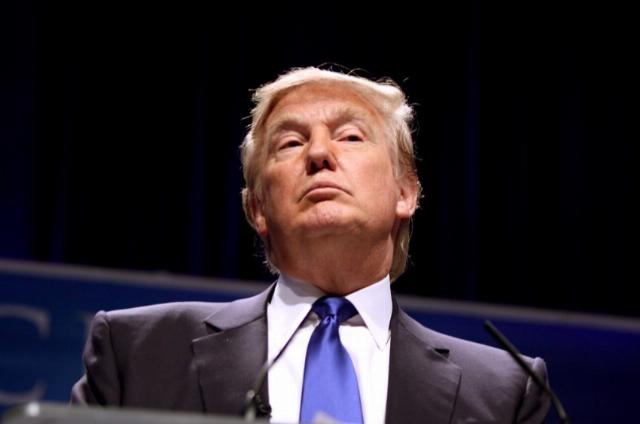The Trump peace bonanza you haven’t heard of
Azerbaijan, Armenia, Nakhchivan, and Syunik are not names most Americans are familiar with. However, the TRIPP (Trump Route for International Peace and Prosperity) Corridor through these countries, cities, and regions is a decisive strategic move in the Caucasus and Central Asia against three U.S. adversaries at once: China, Russia and Iran.
The TRIPP will link the city of Kars in Turkey to the port city of Baku in Azerbaijan. Baku is the most important port in the Caspian Sea, an inland sea connecting Azerbaijan directly to Turkmenistan and Kazakhstan. Together, these countries have proven oil reserves of 37 billion barrels, slightly more than the entire U.S.’s proven reserves of 35 billion.
When Hitler invaded the Soviet Union in June of 1941, his rhetorical justification was secondary to his need to secure the Caucasus and the oil fields of Azerbaijan and Central Asia. At the time, Germany’s only significant access to oil was from Romania, which was insufficient for the needs of Germany and its occupied countries. The famed Battle of Stalingrad was fought to secure the Volga River for its access to Caspian oil and as a launch point for an invasion to capture the port of Baku and its oil trade. It could be said that Hitler’s push into the Eastern Front — whose ultimate failure lost him the war — was driven in large part by the need to secure this region’s oil.
Despite its rhetoric condemning the 2022 Russian invasion of Ukraine, the E.U. purchased €21.9 billion in fossil fuels from Russia in 2024 alone (though far less than pre-2022 levels), compared to sending €18.7 billion in financial aid to Ukraine. Europe’s need for fossil fuels has trumped its desire to oppose Putin’s Russia.
Enter the Trump Route for International Peace and Prosperity. This rail line has the potential to unlock $50–100 billion in annual trade by 2027, a significant portion of which will be in fossil fuels. The rail from Baku to Kars, Turkey will allow the oil and natural gas exports of Azerbaijan, Turkmenistan, and Kazakhstan to enter the Mediterranean (and then, to Europe) without passing through Russia or Iran as before.
Fifteen to 20% of Russia’s GDP is from fossil fuels, and 30–50% of its budget comes from fossil fuels. By opening the Caucasus and Caspian oil to the world, without the need to transit Russia or Iran, President Trump has seriously undermined a geopolitical opponent without firing a shot or starting another regime-change war. In fact, the TRIPP is part of the peace deal negotiated between Azerbaijan and Armenia, with the U.S. leasing a 27-mile stretch of the railway in Armenia’s Syunik province, effectively underwriting Armenian security without deploying U.S. troops.
Not only does the TRIPP give the U.S. influence in a region on the southern flank of Russia and the northern flank of Iran, but it also undermines China’s Belt and Road initiative. China has long dreamed of creating a Middle Corridor, a 4,000-mile trade path from China to Europe. Trump’s link from Central Asia to the Mediterranean undermines China’s most important soft power program, creating a transit route that aligns with U.S. interests.
The TRIPP involves no deployment of U.S. forces and will be solely managed by private non-military organizations. Without using a single soldier or jet fighter, President Trump has delivered a decisive strategic advantage against three U.S. adversaries at the same time.
Although its purpose is non-military, the railway also has the potential to be used for military purposes should Russia, China, or Iran decide to go to war with the United States. The Caucasus and Central Asia have mostly been out of U.S. reach without the use of expensive air power, and supporting ground troops there in the numbers required to make a difference in a potential global conflict would be prohibitively expensive.
With a capacity of 50 million tons of cargo per year, the TRIPP could hypothetically support the transit of over 130,000 tons of supplies per day. A U.S. infantry division in 2025 requires approximately 1,100 tons of supplies per day, meaning multiple divisions and their supporting air power could be deployed to the region. These units could cause severe issues for Russia, Iran, and China should the unfortunate need arise.
The mere ability to deploy significant U.S. forces to Central Asia and the Caucasus acts as a deterrent against Iran, Russia, and China, thus decreasing the likelihood of war. In a conflict with China centered on Taiwan and Southeast Asian waters, China could be forced to deploy significant numbers of troops and supplies to Xinjiang province (where China is currently committing a genocide against the native Uyghurs) on Kazakhstan’s eastern border, diverting them from China’s Pacific coast, which would be the decisive theater of said conflict.
President Trump has delivered a major economic blow to our geopolitical adversaries without fighting a single costly war. By negotiating peace between Armenia and Azerbaijan, he has created a competing transit route for Caspian oil and significantly weakened China’s Belt and Road initiative.

Image: Gage Skidmore via Flickr, CC BY-SA 2.0.